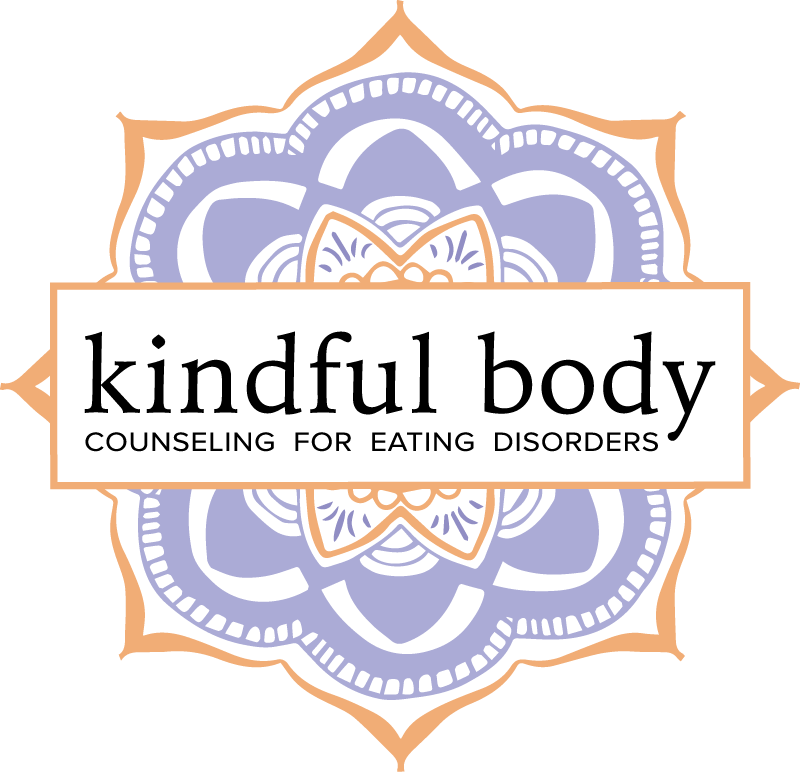Is Sugar Bad for You?
by Dianna Marino, RD at Kindful Body
As the holidays approach, so do the gatherings involving delicious foods both savory and sweet, and unfortunately for many, often served with a side of diet culture. When you think of Christmas cookies, pumpkin pie, or Hanukkah donuts, what comes to mind? If your first thought was about the sugar, then you’re not alone. Sugar has been demonized in diet culture for the past several years, often being characterized with fear-mongering words like “toxic” or “poison”.
The anti-sugar campaign is nothing new. Diet fads often choose a food group to single out and create a sense of danger around. Take the 90’s for example, when the culprit was fat. Fat-free everything was all the craze! Enter the 2010’s, fat is back, and sugar is the new common enemy! Without something to fear, eliminate, or restrict, diet culture fails to thrive.
It’s not you, sugar. It’s us.
So what’s behind these claims that sugar is just the worst? Some believe it leads to increased inflammation, a hot buzzword in wellness culture. Others believe that sugar signals the same receptors in our brain as addictive drugs. When we look at research that examines if sugar is addictive, we are speaking about a chemical addiction similar to that of substance addiction, rather than a behavioral addiction. There is little evidence supporting sugar addiction in humans, as studies have only been done on animals. The research shows binge-like behaviors but only after the animal was given limited access to the sugar. This poses a very interesting and likely take: do we only feel like we are addicted to sugar because we don’t allow ourselves to have it?
A lack of permission is often a driver for binge-like behaviors, including secretive eating and feeling out of control around food. Have you ever had a dessert you normally wouldn’t have in the home and found yourself thinking about it constantly until you either A.) devour much more than feels good in one sitting, or B.) get rid of it because you are so consumed by it and don’t trust yourself with it?
Letting go of food labels
When we label foods as good or bad, or with terms like clean or toxic, we are instantly changing the way we engage with the food and how we feel about ourselves for engaging with or restricting the food. However, when we practice the principles of Intuitive Eating, we remove all the labels and diet culture mentality that has been influencing our food behaviors. Imagine what it would feel like to be able to have a slice of that pumpkin pie, honoring your fullness cues to stop when you’ve had enough, and have no feelings of guilt or shame afterwards. Someone who can engage with food this way, eating for pleasure yet also honoring their body's cues, is not likely to feel “addicted” to sugar.
What happens when you cut out food groups?
Still, eating an excessive amount of any food group, including sugar, is not ideal and can have negative effects on our health. However, eliminating food groups, even sugar, can have negative effects on physical and mental health as well. When one takes the time and energy to restrict food groups from their diet (for reasons other than food allergies), they are more likely to become consumed or sometimes obsessive over food and its ingredients. Limiting our food options can also be detrimental to one’s social life, making eating out at restaurants or having food at parties much more difficult. Once we start restricting certain ingredients, we may be more likely to restrict others, leading one down a path towards orthorexia, or the unhealthy obsession with eating in a way they deem to be “healthy”.
The verdict on sugar
There is limited research supporting claims that sugar is “bad”, “inflammatory” or “addicting.” These labels can further impact your relationship with sweet foods, making them even more enticing for many. What we do know, is that research has demonstrated Intuitive Eaters, those who have made peace with food and allow all types of food in their diet, are more likely to have better relationships to food and body, less likely to have eating disorders, have more positive psychological health indicators than those who are rigid with food intake.
If you are struggling with letting go of food labels or wanting to restrict certain foods, you may want to ask yourself, how is looking at food this way serving me? Working with an eating disorder specialized dietitian can be helpful in letting go of food rigidity and finding a peaceful, and balanced relationship to food.
Begin Eating Disorder Therapy
Kindful Body can help to shift the way you think and feel about your body image in a positive way. Our team of caring therapists can offer a caring, supportive experience from our Orange County, CA-based practice. Start your therapy journey by following these simple steps:
Schedule a 15-minute Zoom consultation with our client care coordinator.
Connect with a caring therapist.
Start improving the relationship between you and your body!
Other Services Offered by Kindful Body Counseling
Eating disorder counseling isn’t the only service offered by Kindful Body. Other services offered include low self-esteem issues, emotional eating recovery, nutrition counseling, binge eating disorder, and body image. Our team is here to help you with your eating disorder recovery whether you need eating disorder treatment in Sacramento, San Jose, Oakland/Berkeley, Walnut Creek, San Mateo, Orange County, CA, or anywhere in California. Learn more about us by checking out our blog and FAQs page!



